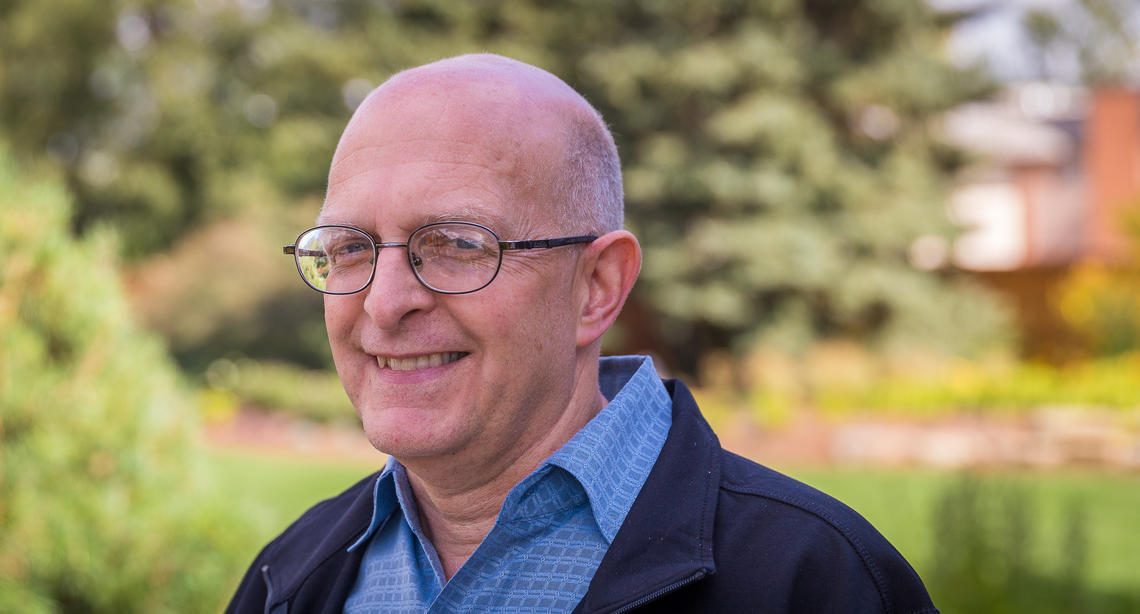June 1, 2021
Pathways to opportunity must lead through social supports

For nearly a decade, University of Calgary Faculty of Social Work researcher Dr. David Nicholas, PhD, has investigated pathways to sustained employment for neuro-diverse adults, particularly those with autism spectrum disorder (ASD); in doing so, he has revealed the landscape through which those paths must cross.
“Part of my work over the years has really been thinking about how to create a networked ecosystem that intentionally includes opportunities for workplace success and sustainability,” says Nicholas. “For people with neuro-disabilities, finding the resources to support their aims of a good life potentially also has bearing on their success and sustainability in employment.”
These resources include things such as social supports, secure housing, and health and mental health supports, he says. It also encompasses elements accessible to employers and co-workers, including education and supports that could help create inclusive opportunities and environments where everyone’s success is valued.

David Nicholas, recipient of the 2021 Sustainability Research Award.
In recognition of this approach, Nicholas was recently announced as the recipient of UCalgary’s 2021 Sustainability Award in the Research category.
“I’m indebted to some amazing partners who have really shifted this work forward from the research focus to on-the-ground application in communities,” he says of the honour. “I really attribute this work to an army of partners that have worked together to say, ‘How can we change the landscape of what's possible in this field?’”
Thanks to Nicholas and his network, this field of research has substantially advanced, but what drew him to it in the first place was its very paucity. At the onset of his career, Nicholas focused on the areas of child-based services in chronic health and disability. Then, he became aware of what the autism literature refers to as “the cliff,” wherein services and resources for neuro-diverse individuals drop off significantly after adolescence.
If we think about the end goal, it isn't so much about employment but rather quality of life and what goes into quality of life.
“It became more apparent to me that we focus a lot of our interventional attention on the early years, which is important. Yet the fact that most of life typically is lived is in our adult years,” he says. “And employment and our vocational activity become a critical part of that life journey. I shifted as I saw some of the gaps and the chasms in our system of services and the opportunities that were available or not available. That really compelled me to look at this area.”
Nicholas emphasizes that thinking about sustained employment for the neuro-diverse community means more than just considering the development of job skills and achieving economic self-sufficiency. He acknowledges the complex, multi-faceted nature of work in our lives; this includes ‘soft’ skills of relationship-building, and managing negative factors such as a job-induced stress. He further speaks to the importance of a myriad of benefits not listed in an employment package such as self identity, achievement and workplace health and mental health benefits offered with some jobs.
“If we think about the end goal, it isn't so much about employment but rather quality of life and what goes into quality of life,” he explains. “Those elements may be things like belongingness and community, and an opportunity to move forward and to face and overcome challenges.”
With the research being shared on the ground across the globe, from Canada to Russia to Australia, Nicholas is encouraged by the results to date. But, with a national employment rate much lower in the broader population, he says there’s still much work to be done.
“Growth in the field, I think, is really important to note. At the same time, we still have disparity in terms of the employment rate at a national level for people with neuro disabilities versus those without,” he says. “When we see what is possible with the reworking of our resources and rethinking of our environments, versus what is, in terms of what people are attaining in employment, I think we have a long way to go… But I’m grateful we've come as far as we have.”


